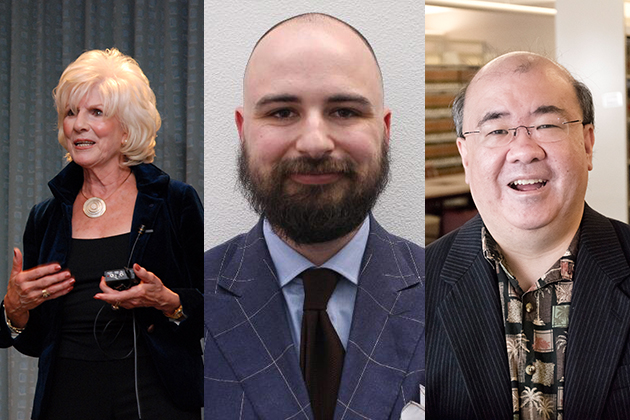NEPR introduces media training program for local youth
New England Public Radio recently celebrated the first graduating class of Media Lab, its new journalism and audio production program for local high school students.
The inaugural class of six Springfield High School students shared their work during a May 24 graduation ceremony, presenting news features on topics such as smartphone addiction and dealing with depression.
Led by Program Director John Voci, Producer Tema Silk and three interns from the University of Massachusetts at Amherst, NEPR’s Media Lab is modeled on other training programs in public media. The curriculum teaches participants to use sound to tell stories, providing lessons in interviewing, writing for radio and producing commentaries and radio features.
“I’m pretty proud of the first session,” said Voci. “It was a big learning experience and we plan to use the lessons we learned during the first run though to revise it for the future.”
Voci credited NEPR CEO Martin Miller for establishing Media Lab after many years of admiring the work of Youth Radio, based in Oakland, Calif., and other public media programs for students.
When NEPR moved its headquarters from the U-Mass Amherst campus to downtown Springfield in 2014, fundraising for the relocation provided support for community engagement work, including startup of Media Lab. The initial pool of funding covers three years of operations, but NEPR expects to raise money to keep Media Lab going much longer.
When Voci began planning the logistics of Media Lab, he consulted with leaders at Youth Radio, Radio Rookies at New York’s WNYC and other youth media programs across the country.
NEPR spread word of the program to teachers at Springfield High School, and several promoted it to their students. To participate, students filled out a simple application and described their interest in Media Lab.
The program is structured into three semesters that coincide with the academic calendar and summer breaks. After-school programs start in September and February and run for 12 weeks. The summer session, which begins in July, is six weeks.
Voci was considering increasing the class size next year from 6 to 10 students, but reconsidered. “I have found that six kids was an optimal size for individualized attention and creating a dynamic, cohesive environment,” he said.
NEPR now plans to cap the class size at six but will serve more students by offering two sessions that will run concurrently. Next year, Media Lab will recruit students from the neighboring town, Holyoke, to participate. In addition, NEPR is the process of hiring a director to begin running Media Lab this fall.
Media Lab strives to give voice to youth from diverse communities. “We need more voices like this in the media, and on the radio, just for the sake of the media giving a fuller picture of what life is like in a place like Springfield,” said Brian Bevilacqua, a Media Lab intern.
Voci agreed. “This program is really about opportunities. These kids have a story to tell and we want to affirm that their voice is valued.”
For the first graduating class, Voci and the other staff are working to develop ways for students to continue building skills in radio through internships or by working at the station. Additionally, the station staff plan to air the news features created by incoming students on future NEPR broadcasts.
Media Lab’s funders include local philanthropies such as the Berkshire Bank Foundation Inc., the Irene E. & George A. Davis Foundation, the Kittredge Foundation and TD Bank & TD Charitable Foundation, as well as United Bank and several major donors.
Related stories from Current:








